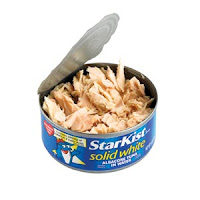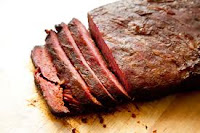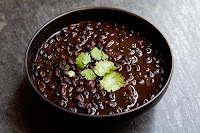The best foods that are highest in protein
- Chicken Breast
 |
Serving size 1/2 breast, bone and skin removed ( 86g )
Calories 141
Calories from Fat 28
Total Fat 3.1g 5%
Saturated Fat 0.0g 0%
Polyunsaturated Fat 0.0g
Monounsaturated Fat 0.0g
Cholesterol 74mg 25%
Sodium 341mg 14%
Carbohydrates 0.0g 0%
Dietary Fiber 0.0g 0%
Sugars 0.0g
Protein 27.6g
Vitamin A 0% · Vitamin C 0%
Calcium 1% · Iron 6%
- Fish

Tuna light and canned in water
Serving size 1 can ( 165g )
Calories 191
Calories from Fat 12
Total Fat 1.4g 2%
Saturated Fat 0.4g 2%
Polyunsaturated Fat 0.6g
Monounsaturated Fat 0.3g
Cholesterol 50mg 17%
Sodium 83mg 3%
Carbohydrates 0.0g 0%
Dietary Fiber 0.0g 0%
Sugars 0.0g
Protein 42.1g
Vitamin A 2% · Vitamin C 0%
Calcium 2% · Iron 14%
- Lean Beef
Serving size 100 g
Calories 190
Total Fat 4g 6%
Saturated Fat 1.37g 7%
Cholesterol 90mg 30%
Sodium 45mg 2%
Total Carbohydrate 0g 0%
Dietary Fiber 0g 0%
Sugar ~g ~
Protein 36.1g ~
Vitamin A 0% - Vitamin C 0%
Calcium 0% - Iron 18%
- Cheese ( Low fat Mozzarella and Cottage cheese )
Serving size 113 g
Calories 81
Calories from Fat 10
Total Fat 1.2g 2%
Saturated Fat 0.7g 4%
Polyunsaturated Fat 0.0g
Monounsaturated Fat 0.3g
Cholesterol 5mg 2%
Sodium 459mg 19%
Carbohydrates 3.1g 1%
Dietary Fiber 0.0g 0%
Sugars 3.1g
Protein 14.0g
Vitamin A 1% · Vitamin C 0%
Calcium 7% · Iron 1%
- Nuts and Seeds (Pumpkin,Watermelon Seeds, Peanuts, Almonds)
Serving size 100g
Calories 318 % Daily Value*
Total fat 22 g 33%
Saturated fat 3.1 g 15%
Polyunsaturated fat 7 g
Monounsaturated fat 11 g
Cholesterol 0 mg 0%
Sodium 751 mg 31%
Potassium 180 mg 5%
Total Carbohydrate 21 g 7%
Dietary fiber 9 g 36%
Sugar 2.5 g
Protein 14 g 28%
Vitamin A 0% Vitamin C 0%
Calcium 5% Iron 5%
Vitamin B-6 10% Vitamin B-12 0%
Magnesium 25%
- Greek Yogurt, Milk, and Soymilk
Serving size 1 cup (244 g )
Calories 122
Calories from Fat 43
Total Fat 4.8g 7%
Saturated Fat 3.1g 15%
Polyunsaturated Fat 0.2g
Monounsaturated Fat 1.4g
Cholesterol 20mg 7%
Sodium 100mg 4%
Carbohydrates 11.4g 4%
Dietary Fiber 0.0g 0%
Sugars 12.3g
Protein 8.1g
Vitamin A 0% · Vitamin C 2%
Calcium 3% · Iron 0%
- Beans
Serving size ( 172 g )
Calories from Fat 10
Total Fat 1.2g 2%
Saturated Fat 0.7g 4%
Polyunsaturated Fat 0.0g
Monounsaturated Fat 0.3g
Cholesterol 5mg 2%
Sodium 459mg 19%
Carbohydrates 3.1g 1%
Dietary Fiber 0.0g 0%
Sugars 3.1g
Protein 14.0g
Vitamin A 1% · Vitamin C 0%
Calcium 7% · Iron 1%
- Eggs
Eggs cooked,scrambled serving size ( 61g )
Calories 102
Calories from Fat 67
Total Fat 7.4g 11%
Saturated Fat 2.2g 11%
Polyunsaturated Fat 1.3g
Monounsaturated Fat 2.9g
Cholesterol 169mg 56%
Sodium 171mg 7%
Carbohydrates 1.3g 0%
Dietary Fiber 0.0g 0%
Sugars 1.1g
Protein 6.8g
Vitamin A 6% · Vitamin C 0%
Calcium 4% · Iron 4%
Calculate your protein needs
Experts believe that the average person consumes more than enough protein daily.However if you are trying to build some muscle and you are exercising too much, you need more protein to help muscle recovery.
To calculate your daily protein needs:
1. Weight in kg which equals weight in pounds divided by 2.2
2. Weight in kg multiplied by 0.8 -1.8
Lifestyle/Training Goal Daily Protein Needs
Bodybuilding 1.0 - 1.6g/lb bodyweight Power & Speed 0.9 - 1.1g/lb bodyweight
Endurance 0.7 - 0.9g/lb bodyweight
Trauma Recovery 0.9 - 1.4g/lb bodyweight
Dieting 0.35 - 1.0g/lb bodyweight
Under Stress 0.45 - 0.7g/lb bodyweight







No comments:
Post a Comment